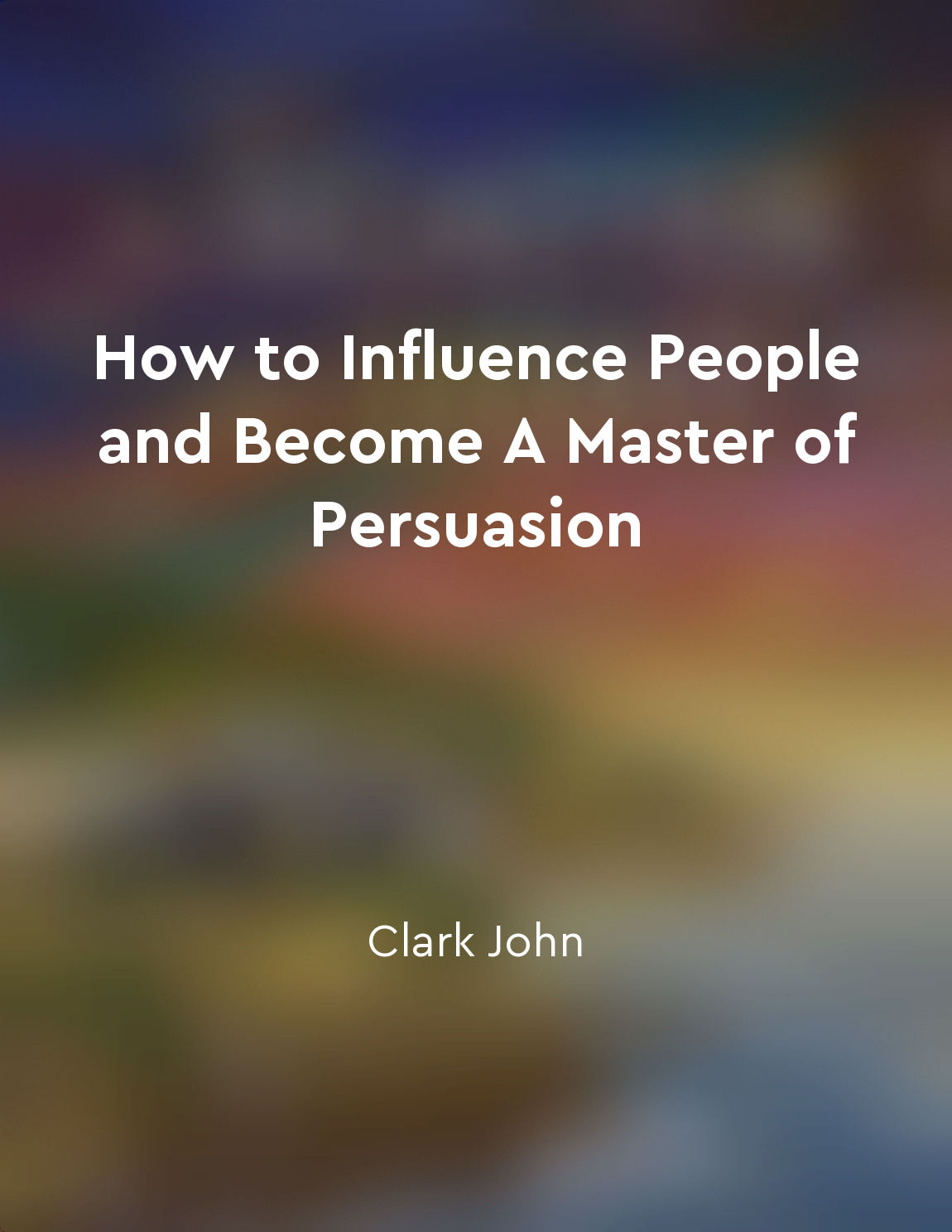Audio available in app
Recognizing and leveraging emotions can enhance persuasion from "summary" of How to Influence People and Become A Master of Persuasion by Clark John
Understanding and using emotions effectively can be a powerful tool in the art of persuasion. Emotions play a significant role in decision-making and can greatly influence our perceptions and actions. By recognizing and tapping into the emotions of others, you can create a more compelling and persuasive argument. When you are able to empathize with someone and understand their emotional state, you can tailor your message to resonate with them on a deeper level. By appealing to their emotions, you can create a stronger connection and build trust, making it more likely for them to be persuaded by your ideas. Leveraging emotions also allows you to create a sense of urgency or importance around your message. By evoking emotions such as fear, excitement, or empathy, you can motivate people to take action or make a decision more quickly. Emotions can also help to make your message more memorable and impactful, as people are more likely to remember how something made them feel rather than the specific details of the message. Furthermore, emotions can help you to overcome resistance or objections from others. By acknowledging and validating someone's emotions, you can help to diffuse tension and build rapport, making it easier to persuade them to see things from your perspective. People are more likely to be swayed by someone who understands and respects their emotions, rather than someone who dismisses or ignores them.- Recognizing and leveraging emotions can be a powerful tool in the art of persuasion. By understanding how emotions influence decision-making and using them effectively in your communication, you can create a more compelling and persuasive argument that resonates with others on a deeper level.


